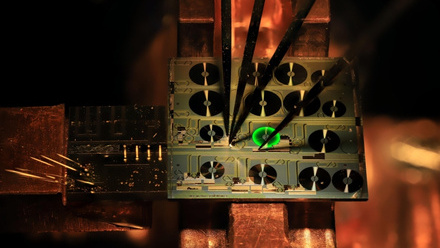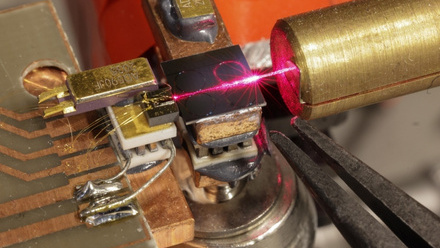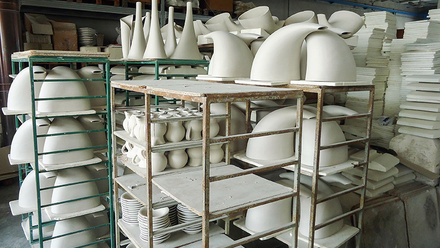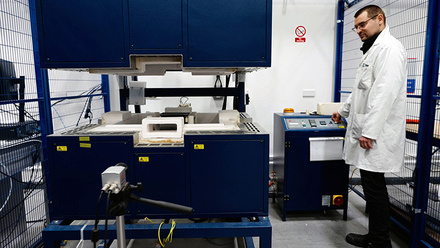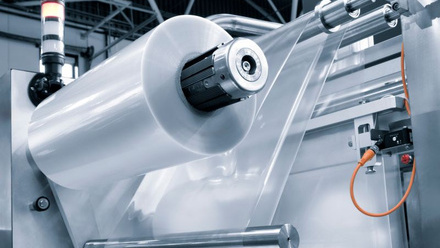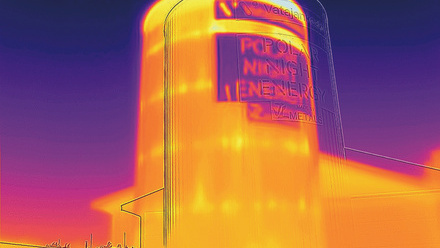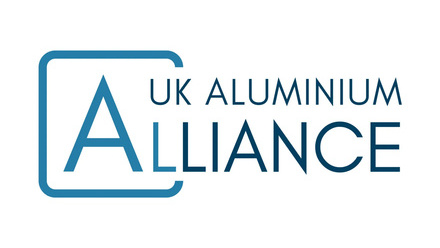Metasurface material makes invisible light visible
Shining infrared light through a metalens containing lithium niobate makes it appear violet.
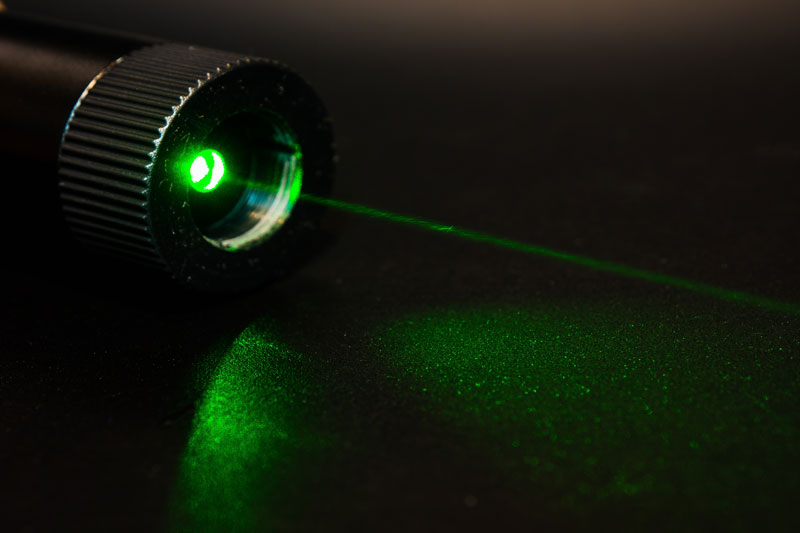
Green laser pens have infrared light going through a high-quality crystalline material and half the wavelength is generated through the pointer in the form of green light. This is the same principle used in the ETH Zurich study
© Shutterstock/Nature'sLens21Metalenses perform in the same way as traditional camera lenses but are flatter, hundreds of nanometres thick and light weight.
Combining them with special materials like lithium niobate can create a non-linear optical effect – i.e. converting invisible light, like infrared, into visible light.
A team at ETH Zurich, Switzerland, used a precursor to lithium niobate and stamped it while in liquid form. Once the material is heated to 600°C it takes on crystalline properties that converts the light.
The manufacturing process uses an inverse mould allowing for repeated use. The researchers claim it is more cost-effective and faster to fabricate than other lithium niobate miniaturised optical devices.
This has potential in security features such as visualising counterfeit bank notes as well as microscopy.
The paper titled Scalable Lithium Niobate Nanoimprinting for Nonlinear Metalenses, is Open Access and is published in the journal Advanced Materials.


